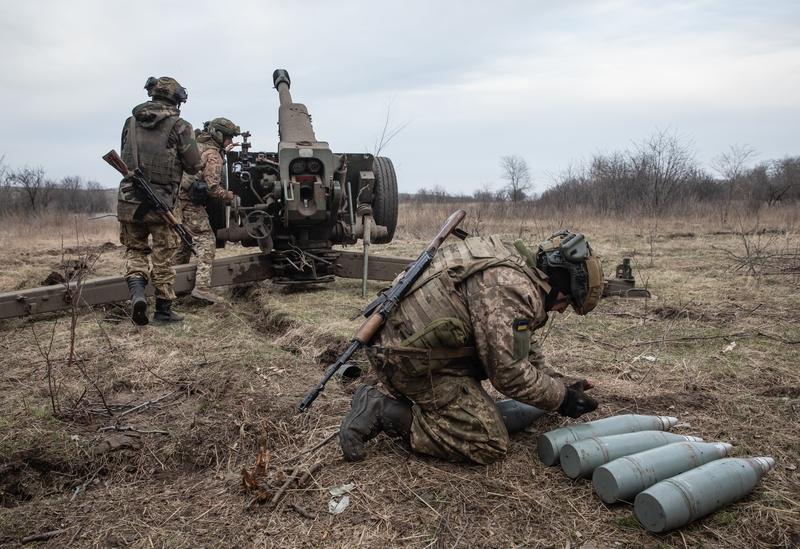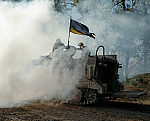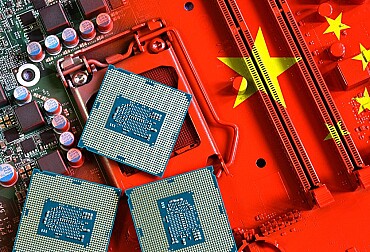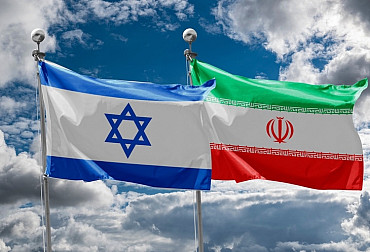Ukrainians repelled a Russian attack near Kharkiv. Just the first of several waves, Zelensky fears
The Ukrainian army has managed to stabilise the situation in the area of Kharkiv, the second largest city there, and halt the Russian advance at the level of the first lines of defence. According to Kiev, the Russians have newly advanced about 8 to 10 kilometres from the border and have taken several villages, but the Ukrainian army has already managed to drive them out of most of them and push them back towards Russia. Fighting is still being fought over the border town of Vovchansk, most of whose inhabitants have already had to leave. President Volodymyr Zelensky said this may be just the first of several offensive waves by the occupiers, but he also said that for the first time since the war began, none of the Ukrainian battalions reported a shortage of artillery ammunition. The need for further support and the fact that a large amount of aid is already flowing into the Russian aggression-plagued country was also stressed by NATO army chiefs at their latest meeting in Brussels.

The Russians opened a new front in north-eastern Ukraine last week. The precursor, in the form of increased shelling of the million-strong city of Kharkiv at an intensity similar to that seen in the first weeks of the invasion, finally marked a regular attempt by the occupying forces to break through Ukrainian positions northeast of Ukraine's second largest city. They first penetrated Vovchansk, which lies almost on the border with Ukraine. The people there, who had enjoyed relative calm for the past year, suddenly had the Russian army in their sights. From one day to the next, fighting broke out in every street there, and almost all of the more than 15 000 inhabitants had to leave the town when the evacuation was ordered. Along the border, the Russians took control of up to 12 villages, but the Ukrainians gradually pushed them out again. The aggressors did not manage to take control of the village of Lyptsi, for example, from where, on the contrary, the defenders continued to advance and were able to consolidate their positions.
"(The Russian army) launched its (offensive) operation. It could consist of several waves. The first was this wave (in the Kharkiv region) and the situation there is already under control," Volodymyr Zelensky told AFP in an interview. Ukrainians have previously feared that this would be a cover-up manoeuvre on Russia's part in an attempt to draw attention away from other areas of the front line, such as the Donetsk region towards Chasiv Yar.
According to Zelensky, even the roughly 260,000-strong Sumy in the same area, located even further north of Kharkiv, is at risk. "We must keep a clear head and understand that they (Russian soldiers) are trying to advance deeper into our territory. Not the other way around. And this is still their advantage," Volodymyr Zelensky continued, according to AFP, adding that Kharkiv, unlike Sumy, was considerably more difficult to conquer. "It's a big city and they understand that we have the capacity and the forces that will fight for a long time."
Still, stabilization, at least temporarily, has been successful, and the Ukrainian president said the situation is even so favorable that no branch of the military is reporting a shortage of artillery ammunition for the first time since the war began. "For the first time in more than two years of the war, none of the battalions is complaining that they are short of artillery shells," Zelensky told Interfax, adding that this is a sharp contrast to the developments of recent months, when shortages of almost everything, and especially artillery ammunition, were reported by most units. It was this type of ammunition that the Czech initiative helped with, among others, by secretly sourcing it from outside EU countries.
A huge amount of ammunition is starting to flow into Ukraine
And the efforts have paid off, as the heads of the North Atlantic Treaty Organisation armies agreed at the last meeting in Brussels - although the Chief of the General Staff of the Czech Armed Forces, Karel Rehka, also said that it is necessary to persevere in the future. "What does Ukraine need in these moments? Exactly what it is getting at these moments. We are sending a huge amount of artillery ammunition, a huge amount of short-range air defense systems and a large number of armored vehicles," General Christopher Cavoli, NATO's supreme allied commander in Europe, told Reuters, maintaining optimism about halting the Russian advance near Kharkiv.
"The Russians have not deployed the number of troops to be able to make a strategic breakthrough. They have neither the skills nor the capabilities to do so. To operate on the scale necessary to exploit any breakthrough to strategic advantage. They are capable of partial territorial gains, which we have seen, but also territorial losses," Cavoli continued, adding that he was confident that the Ukrainians would be able to hold their position in this regard.
Meanwhile, his other senior colleagues within the alliance also remain optimistic. And they are still of the opinion that by persistent assistance to Ukraine, a total victory over the evil of Russia can be achieved. "It is not too late for Ukraine to win. Ukraine's freedom cannot and must not die," the EFE news agency then quoted Admiral Rob Bauer, NATO's second man and chairman of the Military Committee of the North Atlantic Treaty Organization's Chiefs of Defense Meeting.
"And allies, if faced with a choice between meeting NATO's arms goals or supporting Ukraine, should support Ukraine. Supplies can and will be replenished. But the lives lost are lost forever," Bauer said. He was not alone in stressing then that the world is at a historic crossroads between democracy and autocracy. And that, also because of Russian aggression, NATO is ultimately stronger and more prepared for possible aggression against its members than ever before. And it is not only the coordination of assistance to Ukraine that Admiral Bauer believes can help ensure that member states follow what the alliance's flag symbolizes - to follow the same compass.








